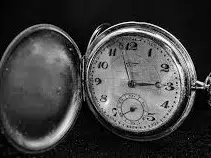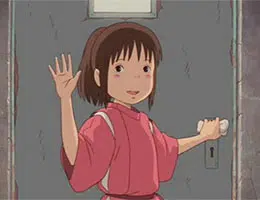 The notion of periquete is used in colloquial language to refer to a very brief period of time . A periquete, therefore, is an instant or a jiffy .
The notion of periquete is used in colloquial language to refer to a very brief period of time . A periquete, therefore, is an instant or a jiffy .
For example: “Excuse me, I have to go out, but I'll be back in a flash,” “We were winning the game and in a flash they turned the result around,” “It's incredible that life can change in such a way in a flash.”
The origin of this concept is not clear. Some versions consider that it comes from Perico , a hypocoristic form of the name Pedro . Just as the expression “Perico el de los Palotes” can be used with reference to an abstract or generic subject, periquete would be a fleeting and indefinite period .
Other analysts maintain that periquete derives from repiquete . This is what is called the rapid ringing of bells : that is, making them ring repeatedly and quickly.
Beyond its unclear emergence, the idea of periquete spread throughout Spain and many Latin American countries. In some regions, however, its use is rare today.
Take the case of a motor racing race. A driver who is in tenth position suddenly manages to reach third place after an accident that leaves several riders out of competition. In this framework, it can be said that the pilot in question advanced many positions in a jiffy .
Suppose, meanwhile, that a highly anticipated book goes on sale and, in less than four hours, it sells out. Faced with this situation, it is possible to affirm that all the available copies were sold in no time .
This type of expressions usually goes through a quite peculiar cycle: they arise spontaneously in everyday speech; They become massive little by little thanks to communication between people from different social groups; They fall into disuse compared to other, more "modern" ones; They return to popular language decades later for different reasons.
 Something similar happens with fashion: it is enough to pay a little attention to the "new" trends, to often notice that these are garments or accessories that our grandparents already used, but that return to the market with some twist that adapts them to current standards, mainly in terms of shape and color. Life in society is cyclical, as much as nature itself, which develops throughout the four seasons, always in the same order, on a planet that rotates tirelessly around a single star, always the same.
Something similar happens with fashion: it is enough to pay a little attention to the "new" trends, to often notice that these are garments or accessories that our grandparents already used, but that return to the market with some twist that adapts them to current standards, mainly in terms of shape and color. Life in society is cyclical, as much as nature itself, which develops throughout the four seasons, always in the same order, on a planet that rotates tirelessly around a single star, always the same.
The most common terms and expressions, so to speak, in our language also "come and go" in terms of their use. However, this fluctuation is not so violent since certain parts of the language are practically immovable. For example, the basic words we use to define periquete have been around for decades and probably won't disappear just like that: "very little time ."
Others, especially those that denote commercial products, are more likely to change or be discarded: car, house, work, etc. Fashions and trends introduce different ways of referring to these and other basic questions. Let's think about the television, for example, which some call "the TV" or "the TV", or even the bicycle, which can be called "the bike"; The original words for formal speech still exist, but the others are the most common in everyday life.
In everyday speech we have some synonyms for periquete that are equally informal; Among the most used are the following: pis-pas (which can also be said pispás ), plis-plas , tris-tras , dos por tres , blink of an eye and blow . All these expressions must be headed by the preposition en : "I'll be back in a flash."
